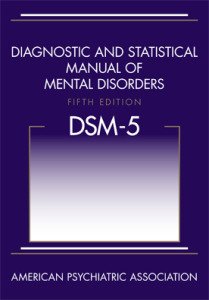Part 3: Affair Fog Theory: Sex Addiction
This third part of the affair fog series looks at the issue of sex addiction and whether it has validity as part of affair fog theory. It’s a lengthy article in order to adequately explore such a popular claim.
Part 1: Affair Fog Series
Part 2: Affair Fog Theory: Mental Health
There is division, debate, and disagreement in the medical and psychological professions about the concept of sex addiction. Opinions among professional psychologists, sociologists, clinical sexologists, and other specialists vary as to whether “sexual addiction” exists at all.
The definition of sexual addiction discussed in this article is the conceptual framework that is popularly applied to the assessment of those who claim they having difficulty in controlling their sexual thoughts and behaviors.
Our position opposes any definition that seeks to enable the abdication of responsibility for behavior, sexual or otherwise. Sexual addiction is not a recognized disorder or diagnosis - willful misconduct is not helped or mitigated by an inappropriate addiction label.
This article contains a brief introduction to how the concept of sex addiction developed, an overview of some of the problems we see within it, and how/if it impacts infidelity and affair fog theory.
 The Sex Addiction Model
The Sex Addiction Model
1. Roots of the Sexual Addiction Model
The concept of sex addiction is rooted in the Alcoholics Anonymous (AA) model that started the religion-based 12 Step movement. ‘S’ fellowships including SA, SAA, S-Anon, and COSA, consider sex addiction as a spiritual and physical disease.
“… from meetings of groups like Sexaholics Anonymous (SA), the beliefs of people committed to the sexual addiction model appear to include:
Sex is most healthy in committed, monogamous, loving, heterosexual relationships. The “goal” of sex should always be intimacy and the expression of our highest self; There are limits to healthy sexual expression, which are obvious (e.g. masturbation more than once a day). Choosing to use sex to feel better about yourself or to escape from problems is unhealthy.”
Dr Marty Klein, Why “Sexual Addiction” Is Not A Useful Diagnosis — And Why It Matters
2. Diagnosis
Sex addiction is essentially a self-diagnosed condition, primarily determined by a screening test with broadly worded questions that easily capture affirmative answers, making it easy to score higher than the ‘baseline sexual addict’ score.
It’s also worth noting that spousal disapproval of/upset about the cheater’s choices is significant in the screening test.
“The concept of “sex addiction” really rests on the assumption that sex is dangerous. There’s the sense that we frail humans are vulnerable to the Devil’s temptations of pornography, masturbation, and extramarital affairs, and that if we yield, we become “addicted.” Without question, being a sexual person is complex, and we are vulnerable–to our sex-negative heritage, shame about our bodies, and conflict about the exciting sexual feelings we can’t express without risking rejection. Sexuality per se, however, is not dangerous–no matter how angry or frightened people are.”
Dr Marty Klein, Why “Sexual Addiction” Is Not A Useful Diagnosis — And Why It Matters
(Dr Klein is a leading critic and opponent of the concept of sex addiction and its popular adoption in today’s culture.)
3. Treatment
The peer support 12 Step program is often held by its members, and some therapists, as the gold standard for alcohol addiction treatment, and many peer support programs apply that same program to sex addiction as it is applied to alcoholism and other addictions.
Despite AA’s popularity, peer reviewed studies show its success rates as between 5 and 10% (considered by some as the rate of spontaneous remission).
The Twelve Step Facilitation (TSF) therapy manual itself acknowledges the lack of efficacy testing of the AA model while clearly stating it’s goal “to educate clients regarding the AA view of alcoholism and to facilitate their active participation in AA”. This is interesting, considering the low success rate and religious bias of the AA program.
It’s worth considering how the rise in sexual addiction ‘diagnosis’ has been driven by those who gain financially from the provision of treatment, and by those who seek to relieve themselves or others of some responsibility for their choices.
4. The DSM

It’s important to stress that despite the prevalence of sex addiction as pop-culture and pop-psychology label, sexual addiction is not a recognized disorder or diagnosis.
It was again excluded from the DSM (American Psychiatric Association’s Diagnostic and Statistical Manual of Mental Disorders). The DSM 5 (considered as deeply flawed by some) controversially introduced ‘Behavioral Addiction’.
“8) DSM 5 has created a slippery slope by introducing the concept of Behavioral Addictions that eventually can spread to make a mental disorder of everything we like to do a lot. Watch out for careless overdiagnosis of internet and sex addiction and the development of lucrative treatment programs to exploit these new markets.”
Allen Frances, M.D.,chair of the DSM-IV Task Force, DSM 5 Is Guide Not Bible
5. Compulsive Sexual Behavior
There is no doubt that, however rarely, there are people who do suffer from compulsive sexual behavior - but sexual compulsion is a different entity to sexual addiction. The compulsive element has very little to do with pleasure, sex, love, or infidelity. Sexual compulsions don’t spontaneously manifest and disappear in the same containing time frame of an affair.
Weaknesses in the Sexual Addiction Concept
We do not need to be addiction experts or sexologists to question obvious weaknesses in the sex addiction model, and to be concerned by the lack of robust explanations for them.
When we pose these concerns to those attributing an affair to sex addiction, most conclude that it is not the root cause of the infidelity in their marriage.
1. Spousal Diagnosis
Spousal upset about/disapproval of the cheater’s behavior as part of the diagnostic process is problematic: spousal judgment is not a sound basis for diagnosing addiction or other sexual pathology.
It could be inferred:
- if both spouses want to ‘make love’ twice a day, that’s within the normal sexual variant in this model
- if one spouse wants sex twice a day and the other wants sex once a week, one spouse’s preferences could be labeled abnormal, by measure of the other’s preferences
A biased spousal view of what is hurtful, destructive, or upsetting, is not a valid basis for determining addictive or compulsive behavior.
2. Co-Addicts
In order to ‘treat’ the sex addiction, spouses in ‘S’ fellowship programs are encouraged to accept shared responsibility for their cheater’s behavior. They are labeled as co-addicts, volunteers, or enablers of their cheater’s behavior (not victims of it).
These programs claim that ‘sexual acting out’ is a ‘couple problem’, and that greater intimacy can be had if the faithful spouse accepts themselves as a co-addict. Co-addicts are expected to take personal moral inventory and make amends to their cheater for their failings.
Many therapists similarly charge the faithful spouse with colluding with their cheater in infidelity/’sexual acting out’.
In our view, it is not acceptable to accuse a faithful partner of collusion/enabling since they would have undoubtedly vetoed the infidelity had they been given a material vote. Since they in fact had no choice, many faithful spouses find discussions about this particular issue distressing and emotive.
3. Sex Outside Marriage
While frequency of sex isn’t necessarily the primary issue,
- a cheater secretly having sex with their affair partner(s) once a month could fit many of the sex addiction model criteria
- if the cheater were faithful and ‘made love’ to their spouse twice a day, that could be considered completely healthy in the same model
This could be likened to diagnosing a patient with alcoholism because their spouse disapproves of who gives them their alcohol. “If you drink/have sex with me you’re healthy and normal; if you drink/have sex with another you’re an addict in need of help and correction” does not have any sound diagnostic basis. It’s entirely possible for marital sex to be harmful, and affair sex to be healthy.
Unfortunately, there are those who would rather consider that their cheater is a sex addict, than face the fact that their cheater is choosing to cheat.
4. Love and Affair Fog
“Enjoying sex is normal. Feeling that there are others who may give you more sex, or better sex, than your spouse is, regrettably, also very common. It doesn’t prove you’re addicted to sex, though.
It is easy to confuse the presence of a sexual compulsion or addiction with a high sexual drive or libido. Having a sexual addiction, however, is very different than having a strong sexual libido. The individual with a sexual addiction finds little satisfaction in sexual activities or in having an intimate relationship. The emotional components of the sexual relationship are non-existent.”
Stanley Ducharme, Ph.D
This presents the faithful spouse with a difficult choice:
- Their cheater is a sex addict and all their sexual relationships (their marriage included) are products of that addiction, and have no emotional foundation.
- the future of the relationship is likely to be a loveless marriage with attendant sexual addiction behaviors.
- Their cheater’s sex addiction behaviors appear exclusively in the affair relationship, but the marriage has a genuine emotional foundation.
- this is unlikely
- it follows that the affair-only-addict must have some control over their addiction behaviors - and if they can control them, it doesn’t fit the addiction model.
- Their cheater’s sex addiction occurred at some point after the marriage and will be part of the future of the marriage.
- ‘S’ fellowships often consider that a sex addict can never be considered ‘recovered’ but is always ‘in recovery’
- Their cheater is not a sex addict.
If sexual addiction has little to do with sexual pleasure or emotional intimacy, it refutes the claim that sex addiction is responsible for the cheater being foggily enthralled by sex with their affair partner.
5. Non Monogamy
Judging sexual activity as unhealthy unless it is part of a committed, monogamous, heterosexual, spiritual, and loving relationship might be part of your religious or moral viewpoint. However, it does not follow that those who do not subscribe to the same moral foundations as you are inherently unhealthy.
It is not pathological to not share another’s particular moral stance or religious dogma.
6. Teenagers
It’s not unusual for post-pubescent teenagers to spend considerable time thinking about sex and romantic relationships. Nocturnal emissions and involuntary erections, for example, are generally accepted as part of a normal and healthy maturation process in teenagers. However, these testosterone-driven events often preoccupy, are not part of a monogamous, heterosexual relationship, are often hidden from others, and are not expressions of love or intimacy. They are often accompanied by shame and guilt, and might involve fantasies and viewing sexually explicit material - these behaviors are often met with parental disapproval.
This description would fit the model of sex addiction, but it would be ludicrous to label these teenagers as sex addicts as a result.
7. Sexual Sobriety
Sexual sobriety is often defined as ‘eradicating unwanted sexual behavior‘. Unwanted by whom? The spouse? Religious institutions? The cheater?
Even basic steps like getting all the booze out of the house doesn’t have an equivalent in sexual addiction: Sexual sobriety isn’t abstinence from the addicting behavior - it is confining all sex and sexual stimulation to spouse and marriage.
My Illness Made Me Have An Affair
So why do so many faithful partners buy in? As we explored in the Affair Fog Theory: Mental Health article, it’s important to understand who benefits from any hypothesis that provides convenient explanation/mitigation for a cheater’s behavior.
It’s appealing to find a ‘professionally ratified’ excuse for a cheater’s affair to distance oneself from witting rejection and deliberate betrayal. The faithful spouse can justifiably minimize the cheater’s culpability and any feelings of personal treachery by depersonalizing the act of infidelity - it wasn’t my cheater, it was my cheater’s illness that made them do it.
“Similarly, angry or frightened women are diagnosing their husbands and sending them to therapy, often saying “either get yourself diagnosed and treated for sex addiction, or don’t come home, because it means you’re just a selfish bastard.”
Dr Mary Klein, You’re Addicted to What?
The experience here is that it is more common for faithful spouses to seek to label their cheater as a sex addict, than it is for cheaters to claim it. Of course, some cheaters encountered here do try to use the sex addiction defense, but often admit that this is a spurious label for their behaviors.
Sex Addiction and Infidelity
1. ‘Recovered Sobriety’
NB: The AA position is that a recovered alcoholic is one who maintains continuous, total abstinence from alcohol and substitute drugs.
- Sex with the spouse is deemed ‘recovered sobriety‘ but sex outside of the marriage is deemed ‘addiction‘ behavior.
- If sex itself intoxicates and creates brain chemistry that the addiction hijacks to drive ‘sexual acting out’, then this chemical state is present in a sexually active marriage.
- If the cheater is able to control their sexual activity by confining it to the marriage despite addiction-hijacked brain chemistry, it supports that they are able to exert sufficient control over their sexual impulses to avoid infidelity.
- If sexual sobriety supports that they are not unavoidably compelled to go outside the marriage, why was infidelity ever part of the issue?
- How can a cheater be expected to confine sexual activity to spouse and marriage when their treatment program’s first step is to admit their powerlessness over their infidelity/behavior?
While fidelity is generally the minimum requirement in reconciliation, it does not make it a legitimate treatment for addiction: If you are addicted to alcohol, drinking at home is not recovered sobriety.
2. Affair Behaviors
If we were to accept, for argument’s sake, that sex addiction is a real condition where infidelities were not the result of a choice to have an affair, it doesn’t explain other affair behavior: Abuse, gaslighting, abandonment, negative feelings towards the spouse, and other attendant behavior do not form part of the sex addiction model, and yet they are hallmarks of cheater behavior.
Sex Addiction and Reconciliation
Perhaps the most troubling issue for a reconciliation complicated by a ‘sex addiction defense’ is what the couple end up tackling and ignoring.
Accepting infidelity as ‘crime by addiction’ allows the faithful spouse to idealize the ‘real, addiction-free relationship’, to ignore/justify the personal harms, and to hold a ‘condition/disease’ more accountable than their cheater. The resulting struggle post-discovery becomes about fighting sex addiction and enabling behavior, not about personal or relational growth and change.
Given the low AA success rate, a faithful spouse with a cheater working the steps or in TSF therapy should be prepared for the significant likelihood of further ‘addiction-fueled’ infidelity. A 90% failure rate is a troubling statistic for a spouse already emotionally devastated by infidelity, or for a cheater genuinely seeking help.
It might sound encouraging in reconciliation that a ‘sober sexaholic’ keeps going to meetings, but is it? The 13th Step (where someone in recovery for more than a year has sex with a new member) is the 12 Step’s ‘dirty little secret’ and has worrying implications for the “S” fellowship particularly.
Tethering oneself to a pop-psychology label or contemporary myth, instead of facing the reality that a cheater chose to have an affair regardless of the consequences to you and the relationship, might be inviting further harm.
Affair Fog Theory
Behavior that one notable sexual addiction proponent describes as ‘a trance’ does fit neatly into affair fog theory, and it might be initially comforting to subscribe to it. Many faithful spouses believe in the popular notion of sex addiction, and claim that, notwithstanding other issues that the cheater may have faced, an affair wouldn’t have happened had sex addiction not been a factor.
The experience here is that most people (cheaters included) have limited understanding of the popular sex addiction concept, and how/if it differs from legitimate sexual compulsion. The desire to ‘hate the sin but love the sinner’ is understandable - relationships are complex and it’s hard to think poorly of people you love.
While the concept of a sex addiction induced stupor does serve affair fog theory very well, the obvious holes in the concept lead us to conclude that sex addiction/addiction fog has little, if anything, to do with infidelity.
1. Public Consciousness
A leading proponent of the sexual addiction model acknowledges that its popularity as a concept, not its validity as a concept, is providing the momentum for its perpetuation.
“While not yet fully acknowledged as a legitimate mental health disorder in the clinical literature (reportedly due to a lack of research study), sexual addiction and hypersexuality nevertheless is becoming identified in the public consciousness as a legitimate neuropsychobiological disorder. This slow shift in consciousness regarding this disorder is largely due to the escalation of technology-driven sexual problems, the growth of international sexual recovery 12-step groups, evolving research study data, as well as the term “sex addiction” being consistently referenced in relationship to the highly publicized problem sexual behaviors of certain major U.S. political, entertainment and sports figures.”
Robert Weiss, Psychology Today

Self-diagnosed sex addiction has become a common celebrity justification for infidelity. As we explored in The Mistake Defense, the celebrity factor can normalize certain terminology in our culture and foster support for the plight of these likable, popular cheaters.
 Perhaps it’s more helpful if we liken a cheater who claims sex addiction not to the Tiger Woods version of a sex addict, but instead to the Ariel Castro version. Immediately, the idea of self-diagnosed sex-addiction, proffered to excuse a person’s behaviors, becomes highly unpalatable - would you still be willing to accept the label of co-addict or enabler in Castro’s situation?
Perhaps it’s more helpful if we liken a cheater who claims sex addiction not to the Tiger Woods version of a sex addict, but instead to the Ariel Castro version. Immediately, the idea of self-diagnosed sex-addiction, proffered to excuse a person’s behaviors, becomes highly unpalatable - would you still be willing to accept the label of co-addict or enabler in Castro’s situation?
2. Harmful Behavior
The debate about sexual addiction aside, infidelity causes real and long-lasting harm to the faithful spouse. The underlying cause does not mitigate the damage to the faithful spouse, regardless of whether we accept or reject the sex addiction model.
However, staying married to someone who behaves in ways that cause you lasting emotional and psychological damage requires a rethink. When they also offer a reason why they might be ‘compelled’ to do it again, be honest about what you’re prepared to accept and what you’re signing up for.
Even if sexual addiction were well-founded, staying married to it might not be.
~ Wayfarer







